Not just paraphrasing, but paraphrasing well is essential for a high score in IELTS.
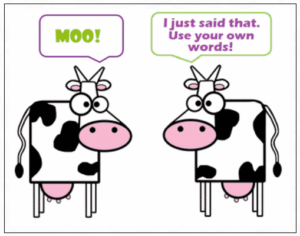
In this post, I’d like to provide tips on how to maximise your score.
I will tell you what you should try to do and shouldn’t do, and explain the mistakes that many IELTS student make which lowers their score.
I’m going to show you how learning to paraphrase in writing can be applied to the other IELTS Skills tests too.
I’ve confirmed with examiners and other IELTS teachers that students who can paraphrase well in writing often do very well in Reading, Listening and Speaking too.
This post will show you tips on:
- Using synonyms
- Changing word forms
- Changing sentence structure
- Understand why the band scores matter
- Show what you shouldn’t do
- Show you how to avoid mistakes
- Demonstrate how you can apply these skills to the other parts of the IELTS Test.
1) Using synonyms
In IELTS, one of the most effective ways to paraphrase is to use a selection of synonyms.
Simply put, by using an alternative word or number of words with a similar meaning demonstrates to the examiner the range of vocabulary needed to get Band Score 6 and above.
Here is my basic example of how you might paraphrase by using synonyms:
The reasons for increasing levels of pollution in cities are the increasing number
of people, the growth in industry and greater number of cars.
Here I have attempted to the rewrite so I keep the original meaning:
The causes for higher levels of pollution in urban areas are the rising population
of cities, the expansion of industry, as well as the growth in car ownership.
To show you a further example, here is an extract from a student’s notebook that illustrates how she’s recording the vocabulary and noting the synonyms.
By following this habit, with practice she can apply this knowledge in the IELTS test and improve her score.
Examples of Synonyms
- reasons/ causes
- increasing/ higher
- cities/ urban areas
- increasing number of people/ rising population of
- the growth of/ the expansion of
- and/ as well as
- greater number of cars/ growth in car ownership
2) Changing word forms
A second effective way to paraphrase is to change the form of the words used.
This basically means that you use the same words given in the IELTS questions for example, but you alter the form of the word.
Here is my genuine example of how you might paraphrase by changing the word forms:
Many people in developed countries are unhealthy because they neglect to eat well and exercise.
Here I have attempted to rewrite the sentence so I keep the original meaning:
Many people in developed countries have poor health because they are neglecting to eat well and fail to exercise.
You can see these are the words I’ve changed.
- poor health/unhealthy
- neglect/neglecting
- exercise/exercising
and also the words I’ve added.
- fail to
Many people in developed countries have poor health because they are neglecting to eat well and failing to exercise.
or
Many people in developed countries have poor health because they are neglecting to eat well and are not exercising.
or even
Many people in developed countries have poor health because they are neglecting to eat well and are not exercising enough.
This again demonstrates to the examiner that you have a good knowledge of vocabulary.
BUT most importantly, it also shows the examiner you can apply different word forms well in different situations.
Only 6.5 candidates or higher can do this!
3) Changing the sentence structure
A third way is to change the structure of the sentence by changing the order of the words.
Carbon emissions in some countries are reducing because more renewable energy is being produced.
By reversing the two clauses in this sentence and changing the conjunction, we can rewrite it with a similar meaning.
More renewable energy is being produced, therefore, in some countries carbon emissions are reducing.
Next Steps
Taking IELTS paraphrasing to a higher level.
You can improve your writing further by applying the synonyms and word form changes to the original text to produce an example such as this.
The increasing production of renewable energy accounts for the reduction of carbon emissions in some countries.
The Importance of paraphrasing and band scores
As you will see good vocabulary improves your band score consistently.
Here I have paraphrased for you what this means
It is evident form the official band scores that effective paraphrasing will improve your band score in terms of vocabulary (lexical resource) but the effects of good paraphrasing will naturally affect the other three criteria too. So, Win Win!
What you shouldn’t do in IELTS
To score well in IELTS there is a balance that students need to understand but don’t.
This balance is: Effective paraphrasing means not to over paraphrase!
Why? Well, there are two reasons for this.
Firstly, if you over paraphrase
- the language is likely to sound unnatural.
and secondly
- you are likely to make more mistakes in your writing.
Just look at how mistakes can affect your scores!
As you can see having a wide range of vocabulary does not guarantee a high band score if there are numerous errors.
What you can do to avoid mistakes
What’s the most common question that students ask about IELTS?
One that appears again and again is
“Is there one thing I can do to improve my IELTS score?”
There is no simple answer, but one thing any IELTS student can do is practice paraphrasing.
You can start simply by rephrasing statements, questions or ideas, and saying them in a different way.
As I have shown you, it’s a really useful skill for a high band score in writing but you can use it in ALL parts of the test too, and of course, in speaking it will stop you repeating things and stop you sounding boring in real life.
The more you do this, the more native like you will sound! I’ve included a link to this TED video because I think the idea of native sounding speaking is fascinating and there are also some great tips here.
How paraphrasing applies to other parts of the IELTS Test
Let’s look at how we can use paraphrasing in each part of the test.
IELTS listening test – Paraphrasing
In my classes I always encourage students to use the preparation time to read the questions before they listen to each section. This should apply on the IELTS test day too.
It’s also a good idea to use this time to circle or underline what you believe are the key words.
While you are doing this, you can try to think of synonyms or other ways of saying the same information to predict the answers.
For example, the test might have a question like:
“Which motel matches each description?”
Where you are given a number of options in a box and have to match them to descriptions:
| A. The Grosvenor
B. Sandy Beach |
- Is set in a coastal area
- Only opened recently
- Has an indoor swimming pool
Now, when you listen, you won’t hear , “The Grosvenor is set in a coastal area”.
Instead, the recording might say something like, “The Grosvernor is located/situated in beautiful countryside on the coast.”
The speakers will have paraphrased ‘set’ and used the synonym ‘located’ and instead of saying ‘a coastal area’, they’ve used ‘countryside + on the coast’.
If you’ve done the paraphrasing before you even hear the recording, it will be much easier to hear it and catch the correct answer.
IELTS reading test – Paraphrasing
I encourage students to use a similar technique to help locate answers in the reading passages.
For example, you might have a question like this:
“What did researchers identify as the most productive time of the day?”
Here, I would select the key words and then think of synonyms, or even antonyms.
So:
- researchers – scientists
- identify – find
- productive – efficient
and the text may have information that looks like this:
“Scientists have found that for many people the hour before lunch is when the majority of workers are most efficient.“
So, you can now see how high-level paraphrasing helps in the IELTS reading test too.
IELTS writing test – Paraphrasing
For both tasks 1 and 2, it’s vital that you summarise the question in your own words – that you paraphrase it!
Don’t copy whole phrases from the question itself, as this may be discounted from your word count, and you will lose marks.
Have a look at part of a typical task 1 question:
“The pie charts below show the average household expenditure in Singapore and Hong Kong in 2018.”
To paraphrase this you could start your essay like this:
The pie charts illustrate how much typical families in two major Asian cities spent in 2018.
As you can see, we’ve changed:
- show – illustrate
- average – typical
- expenditure – how much… spent
- household – families
- Singapore/ Hong Kong – Major Asian cities
Remember not to over paraphrase and remember, sometimes you just can’t paraphrase- there’s no other way of saying pie chart, or dates like 2018, so just keep these the same.
IELTS speaking test – Paraphrasing
Finally, the most overlooked aspect of paraphrasing is often in Speaking.
In speaking, part of the test criteria is that you are able to paraphrase the question in your answer.
So if you are asked:
“What do you like doing in your free time?”
Try not to answer by simply saying, “I really like dancing and doing sports”, but try to add to the question:
“I’m into dancing and doing sports, and when I have any spare time, usually at the weekend, I love going walking in the countryside. In fact I’m walking tomorrow.”
So there you go!
I hope you found these practical tips useful.
Finally, you can go over to my Facebook page and join other students who are working towards the test.
or Join my IELTS WRITING TASK 1 group here, for free practice.
Best Regards
Jonathan
I’m Jonathan
I’ve taught IELTS and University English in more than a dozen universities and schools around the world.
I’m a parent, traveller and passionate about language teaching and helping students achieve their dreams.
Whilst living in Austria or working in Asia, I run IELTS courses to help students get to where they want to be.
If you are serious about IELTS, connect with me to see how I can help you.

The Best Approach to Task 2 Writing
Paragraphing in Task 2 Writing
Writing – Benefits of a Foreign University Education
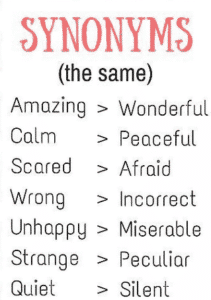



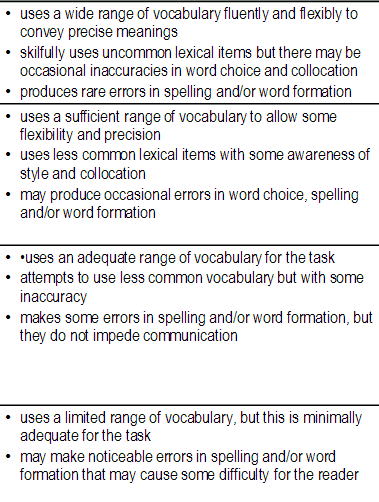



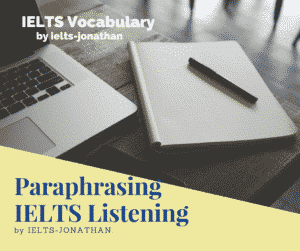
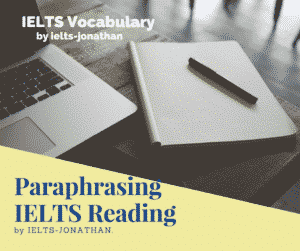
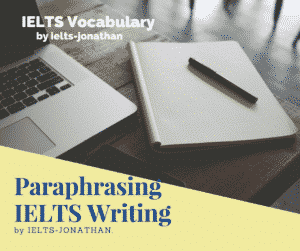
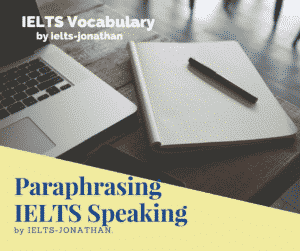
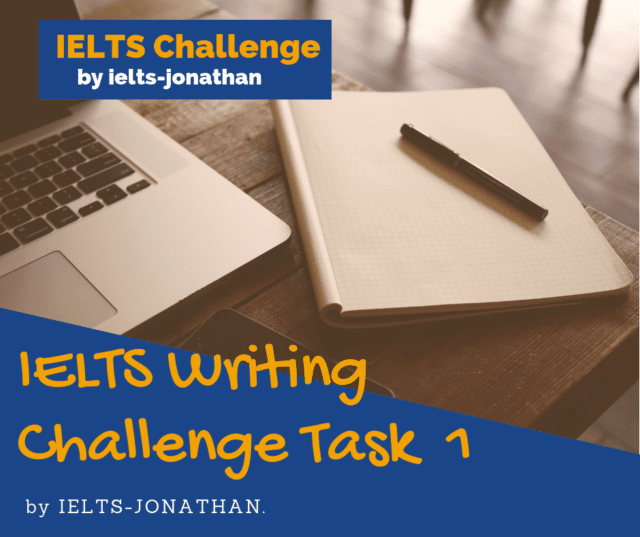


Was this helpful? Leave a comment :)